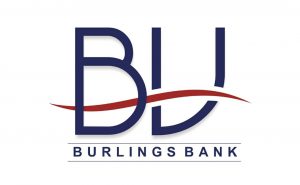Products & services

Our trade and finance solutions involve the use of our asset backed letter of credit and guarantee facilities that we hold with numerous institutions. Our credit obligations are available (subject to negotiation) to importers and trading companies worldwide, who are looking to expand their business by leveraging their existing cash flow to the maximum.
At Burlings Bank Ltd, we have developed a special STF model for the Sub-Saharan Africa Market.
Under the structure, we arrange the establishment of letters of credit and provide funding for the supplier. We work with the importer on a flexible remittance Guarantee Payment terms.
The imported goods are held under a joint venture agreement with a 3rd Party logistics firm fully underwritten by Lloyd’s Group up to a value of $20million per transaction.
ECSIE is a service for companies and project promoters who plan to import equipment and goods from China (PRC), United States of America, Portuguese, and United Kingdom.
We can arrange a loan of up to 80-85% of the value of the import value. Salient features of the loan include:
- Term of up to three (3) years
- Attractive interest and terms
- Loan from leading banks in the world
Export credit support project finance scheme (ECSPFS)
ECSPFS is a service for the benefit of promoters of capital intensive projects who plan to import equipment and engineering services from leading Chinese, United Kingdom or United States companies.
ECSPFS results in a long term loan from a leading Chinese bank, of up to 75-85% of the value of the import as well as support with working capital. Salient features of the loan include:
- Term of up to 15 years
- Internationally competitive interest and terms
- Equity capital available for select projects
ECSPFS can be used for the following kinds of projects:
- Power generation and distribution – thermal, hydro electric, wind, geothermal solar, etc. Entire distribution systems including towers, cables, substations, transformers, smart metering
- Bridges, flyovers, roads, railway lines, airports, logistics hubs, transportation hubs, factories
- Buildings, townships, cities, signature construction projects
- Dams, waterways and canals, town sanitation projects, public transportation systems
In the case of some projects, our private Equity Participating Company (EPC company) or financial institution may also offer to participate in particular projects by providing some equity capital.
The equity participation will range from 10% to 60% subject to terms. Equity participation is a rare exception and available only for some projects that have characteristics of special interest.
We take the time to understand your specific objectives and create an invoice finance solution that is tailored specifically to your business needs thus improving your operating cash flows.
At Burlings Bank, we buy without recourse, the debt resulting from a trade contract which is due in the future. We structure forfaiting transactions involving medium term capital goods/fixed assets as this type of goods are usually expensive and the financing period may account for several years, yet exporters are not willing to finance importers over such a long period.
How forfaiting works
Forfaiting is the purchase of a series of credit instruments such as drafts drawn under time letters of credit, bills of exchange, promissory notes, or other freely negotiable instruments on a “non recourse” basis (non recourse means that there is no comeback on the exporter if the importer does not pay). The forfaiter deducts interest (in the form of a discount), at an agreed rate for the full credit period covered by the notes. The debt instruments are drawn by the exporter (seller), accepted by the importer (buyer), and will bear an aval, or unconditional guarantee.
The guarantee will normally be issued by the importer’s bank, but some strong corporates can be accepted without a bank guarantee. In exchange for the payment, the forfaiter then takes over responsibility for claiming the debt from the importer. The forfaiter either holds the notes until full maturity (as an investment), or sells them to another investor on a non recourse basis. The holder of the notes than presents each receivable to the bank at which they are payable, as they fall due.
What are the commonly used debt instruments?
Many exporters prefer to have the importer’s bank open a letter of credit to cover their debt under a supplier’s credit. The bank issues a deferred payment letter of credit that specifies a series of one or more time drafts which the bank will accept (guarantee) upon presentation of the usual documents required by an LIC. The letter of credit does not have to be transferable, or confirmed by the advising bank in the exporter’s country; but it must be subject to the Uniform Customs and Practice for Documentary Credits (UCPDC) of the International Chamber of Commerce, Paris (UCP 500).
Promissory notes or bills of exchange (or drafts) are actually the most commonly forfaited debt instruments. Under a forfaiting agreement, a promissory note or bill of exchange/draft is issued for each installment of the supplier’s credit thus documenting the existence of a claim of the exporter on the importer that is totally abstract: that is, it is unconditional irrevocable, and divorced from the underlying trade transaction.
Burlings Bank Ltd assists its clients with a competitive Collateral Transfer Service. Collateral Transfer or Lending is a specialised transaction that obtains where the beneficial owner (the applicant) of an asset agrees to place such assets at the disposal of a third party and for the benefit of said third party, namely the Beneficiary, for a pre-determined period of time at an agreed rate of remuneration.
This is done through a Collateral Transfer Agreement or a Securities Lending Agreement and involves the ‘transfer’ of the original asset (the collateral) into a new security that the beneficiary can utilize. Hence the term “Collateral Transfer also known as leasing of bank instrument”.
This is done by the beneficial owner of the original underlying asset pledging that asset to the facility bank (the Issuing Bank) in order that the Beneficial owner can instruct the remittance of a Bank Guarantee/Letter of Credit to the beneficiary and his Recipient Bank.
In some cases, the Beneficial owner (the applicant) of an existing Bank issued debt obligation may choose to assign its rights and interests in such an instrument to a third party (the beneficiary), where the transfer of such rights and interests are permissible, without the applicant relinquishing its rights to ownership and interest payments. This can be particularly useful for clients who require credit enhancement for their balance sheet operations.
The debt obligation that results in the form of a Bank Guarantee or a Letter of Credit, e.t.c. may be used for legitimate purposes by the beneficiary in accordance with the terms of the Collateral Transfer Agreement. The underlying asset pledged to the issuing bank may be cash, bonds, stocks, gold or other assets (or often a combination).
Range of available products
- Letters of credit
- Standby letters of credit
- Bank guarantees
- Performance guarantees
- Demand guarantees
- Proof of fund (POF) messages
- Blocked fund
- Pre advice message
- Comfort letters
- Ready, willing and able (RWA) messages


Ambitious middle market companies often look for capital in order to grow. With several years structuring complex solutions, our team provides the right funding ideas for your current situation.
We work within specialised industry groups, enabling them to understand your specific needs and determine the most cost-effective way for you to access capital.
Our senior directors bring years of experience to every engagement. We also benefit from the firm’s knowledge and diverse business expertise (from internal and external specialists).
Our investment banking team specialises in:
At Burlings Bank, we offer clients a wide range of securitisation solutions which enables the client to monetise future cash flows and finance its operation. In the practical sense, any asset with future cash flow potentials can be securitised ranging from credit cards, oilfield royalties, song royalties, and retail companies
receivables etc.
The concept is that of asset managers estimating the future value of cashflow and divesting to investors at a discount. Turbo-charging present day cashflow. It is “tomorrow’s value…today”.
A special purpose entity (SPE) is established in most cases as a tax efficient means of purchasing and securitising assets thereby reducing and isolating the risk of write-offs and the knock-on effect of any negative outcomes from the rest of the company’s business risks.
Our team is skilled in managing every facet of a securitisation transaction, from origination and structuring to credit management, conduit management, accounting and financial reporting.
The structured finance mechanism enables capital to be raised off the balance sheet of companies. An added advantage of off-balance sheet vehicles is the generation of large volumes of capital without either issuing stock or adding debts to the balance sheet.
We work within specialised industry groups, enabling them to understand your specific needs and determine the most cost effective way for you to access capital.
We provide solutions for businesses in distress situation by inappropriate capital structures and challenging economic industry conditions or simply poor management and lack of interest.
Our team helps to provide more stable capital structures and more financial flexibility. We provide a wide range of advisory services across many industries as Debtor Advisory and Creditor Advisory.
Our M&A team have an in depth understanding of the merger and acquisition processes therefore, we are able to analyse the strategic priorities and approaches of the various deal players. We also provide/review the detailed information on the various documents typical to M&A deals and the legal issues that arise in respect thereof.
It is a fact that most M&A deals never become a reality. The things that kill deals are: time, money, terms and ego. By engaging the best legal practice, strategic, commercial, and financial aspects of the international M&A process, we are
equipped with the knowledge and expertise that will ensure that your deal does not fail due to delays, illogical pricing, or unnecessary/inaccurate terms.

